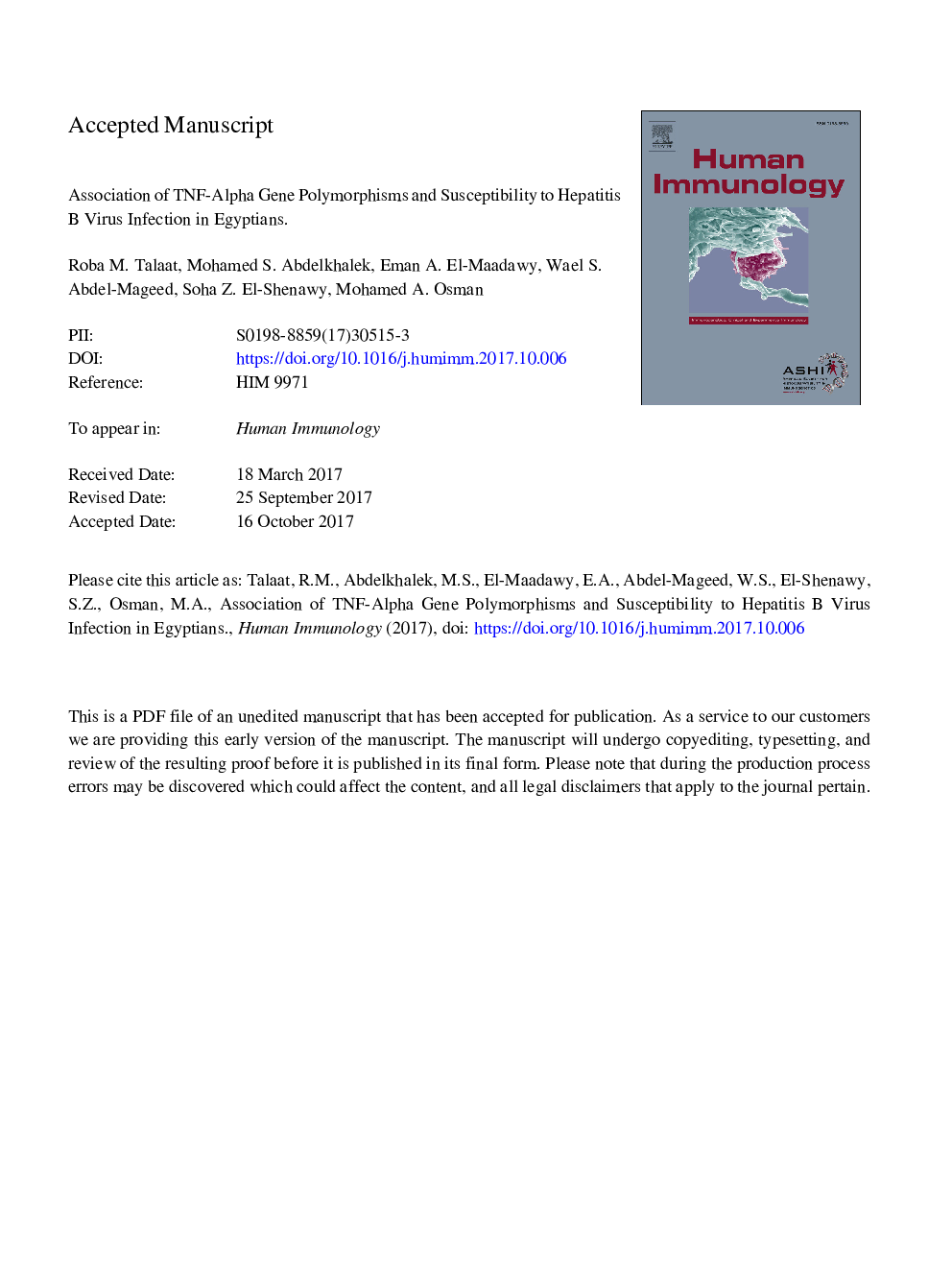| Article ID | Journal | Published Year | Pages | File Type |
|---|---|---|---|---|
| 8737726 | Human Immunology | 2017 | 34 Pages |
Abstract
Tumor necrosis factor alpha (TNF-α) is one of the important cytokine in generating an immune response against hepatitis B virus (HBV). Genetic polymorphisms might influence gene transcription, leading to disturbance in cytokine production. We hypothesized that single nucleotide polymorphism (SNPs) in TNF-α gene could affect the pathogenesis of HBV. To test this hypothesis, we investigated the role of TNF-α polymorphism [â863C/A (rs1800630), â308G/A (rs1800629), â376G/A (rs1800750), â857C/T (rs1799724) and +489G/A (rs1800610)] in the susceptibility to chronic hepatitis B (CHB) infection. Polymorphisms of the TNF-α (â863C/A (rs1800630), â308G/A) were analyzed by Polymerase chain reaction sequence specific primer (PCR-SSP) while TNF-α (â376G/A, â857C/T and +489G/A) by PCR-restriction fragment length polymorphism (PCR-RFLP) in 104 patients with CHB and 104 healthy controls. The plasma level of TNF-α was measured using Enzyme-linked immunosorbent assay (ELISA). The study showed a significant increase in the frequency of â863CC, â376GA, â857CC, â857TT and +489GA genotypes and â863C, â376A, â857C, and +489A alleles in CHB patients compared to controls. In addition, CAGCG haplotype had a highest frequency in CHB patients. A strong Linkage Disequilibrium (LD) between TNF-α â863C/A (rs1800630) and â376G/A (Dâ²â¯=â¯0.7888, r2â¯=â¯0.0200); â308G/A and â857C/T (Dâ²â¯=â¯0.9213, r2â¯=â¯0.1770); â308G/A and +489G/A (Dâ²â¯=â¯0.9088, r2â¯=â¯0.1576) was demonstrated. CHB patients had significantly lower levels of TNF-α compared to controls. In conclusion, our preliminary results suggest that â863C/A (rs1800630), â308G/A, â376G/A, and +489G/A of the TNF-α gene may play a role in HBV susceptibility in Egyptians. The significant reduction in TNF-α in CHB patient was independent of any particular genotype/haplotype in TNF-α.
Keywords
Related Topics
Life Sciences
Immunology and Microbiology
Immunology
Authors
Roba M. Talaat, Mohamed S. Abdelkhalek, Eman A. El-Maadawy, Wael S. Abdel-Mageed, Soha Z. El-Shenawy, Mohamed A. Osman,
